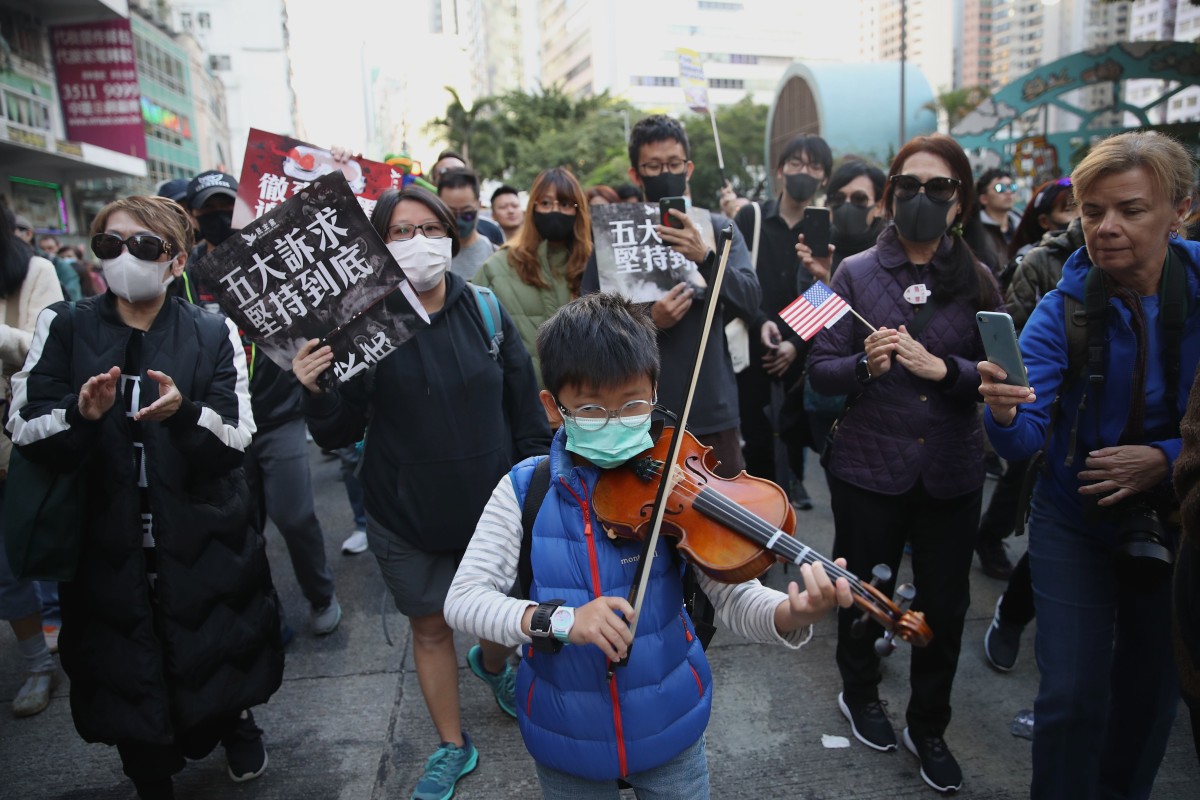 Children learn from observing adult behaviour.
Children learn from observing adult behaviour. Hong Kong has been embroiled in pro-democracy protests for months now. During these demonstrations, violence has become commonplace. It seems even little kids in kindergarten and early primary school are not immune to the flow-on effects according to Fung Wing-kai, an Assistant Professor of Early Childhood Education at the Education University of Hong Kong, who recently saw his four-year-old son holding the lid of a plastic box in one hand and waving a drumstick in the other like a riot policeman – using them as a shield and a baton.
Young Post spoke to Fung to learn more about how ongoing protests are affecting the behaviour of very young children.
In terms of the impact violence has on kids, Fung quotes the findings of the Bobo Doll Experiment, a famous early childhood study devised by US-Canadian psychologist Albert Bandura in the 1960s. It illustrates how children learn from adult behaviour, through observation.
How to help a friend with depression: practical advice from a psychologist
In that experiment, children watched, on a TV screen, how a doll, in the shape of a clown, was repeatedly hit by an adult man. The researcher then put children in a room alone with the doll and watched how they acted. After seeing violent behaviour by an adult, researchers found that children were more likely to behave violently, both verbally and physically.
The study also found that while children learned and remembered certain behaviour, they did not always act it out. Whether they turned the violence they had seen into action depended on what they saw as punishment for violent actions.
If kids saw the man who hit the doll being punished for his behaviour, they were less likely to be violent, as they understood there were consequences to such action. If the man’s action went unpunished, the study found that children acted aggressively.
“Let’s say we apply the results to the current situation in Hong Kong, it seems that both sides have [resorted to] some violence. But one side has been heavily punished, while the other side’s behaviour has seemingly been approved. What does this imply? What message will this send to our children?” asks Fung.
“I think everyone should really act responsibly now, because it’ll always impact kids. They’ll always pick up something from what they’re exposed to.”
A child’s development may also be affected by insecurity.
In school, Fung says they’re taught amazing values such as empathy, love and trust. But in reality, these values may not seem to be present in their environment. So naturally, they are unable to trust what they are learning and they feel more insecure.
Some time ago, protesters gathered at a police station near Fung’s home. At about midnight, police fired tear gas. Woken by the loud noise, Fung’s son was frightened and he immediately went to his parents for a cuddle. “He needed our comfort. You see, living in such a situation does pose so much psychological stress to children,” Fung says. “Going back to the core values that we teach kids at school, if safety, such a basic need, can’t be fulfilled, how can they achieve the more advanced ones like love, belonging, self-esteem and self-actualisation?” Fung asks, referring to Abraham Maslow’s Hierarchy of Needs, a human development theory that ranks five different human needs in a pyramid shape with basic needs (food, water, sleep, and warmth and safety), at the bottom, and esteem and self-actualisation at the top. As the demand for each layer is met, an individual moves to the next level of needs.
Talking points: Should friends break up because of opposing political beliefs?
Fung believes kids these days are maturing faster than previous generations. For instance, technology allows slightly bigger kids, who are old enough to have a smartphone, to see the world in a new light. They can gain unlimited information and knowledge about the world with digital technology, and so form their opinions quicker than ever before. He says kids are individuals with independent thinking. “You can’t treat them like babies who only eat what you feed them, because kids are inherently active learners. They’re curious, they ask questions, and they look for what they want to know.”
Just because they are young, does not mean kids are not capable of understanding the world around them. He says they’re observing, learning and trying to make sense of the world every second of the day. And concealing reality just because it’s too cruel will only detach them from the world, Fung says.
A huge part of how children construct their own view of the world also has to do with how their parents interact with them. When Fung takes a stroll with his son, they often stop at a Lennon Wall, near their flat.
“As soon as my son sees all these pictures and posters, he starts asking questions. I always try to answer him to the best of my knowledge and understanding, but I never ask him to just ignore it and keep walking, because he lives in the community, and he should know what’s going on as well,” Fung says.

